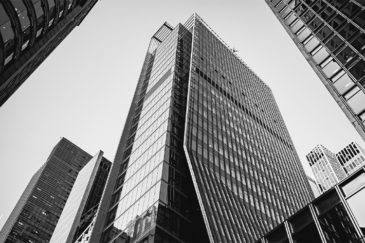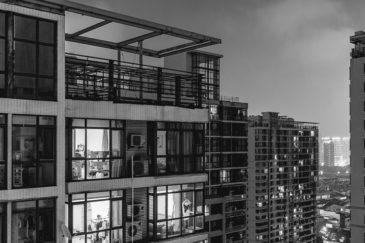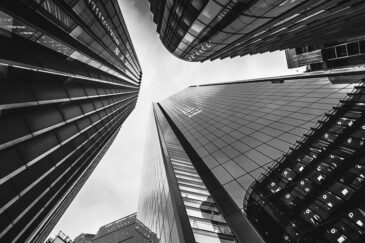
Sustainable
PreservationCornell Certificate Program
Overview and Courses
Balancing historic preservation with a desire to achieve higher sustainability standards can be challenging, but with careful planning and consideration, both goals can be met. In this certificate program, you will explore how to balance these goals by applying a sustainability lens throughout the historic preservation process.
You will begin by gaining a foundation in historic preservation and sustainability, using different evaluation methods for retaining energy in historic buildings. You will also strategically adjust sustainable retrofit options with community priorities and integrate adaptability best practices to avoid future challenges. To ensure the success of your projects, you will discover how to assess the economic value and impact of sustainable preservation, as well as market capacity. With these considerations, you will identify opportunities to insert preservation principles into planning policies and practice proposing them. By the end of this program, you’ll have valuable, foundational knowledge and practical, applied strategies to implement throughout your career.
While this program is valuable for an international audience, please note that it frequently refers to U.S. rules and regulations for the built environment.
The courses in this certificate program are required to be completed in the order that they appear.
Course list
- Feb 25, 2026
- Jul 1, 2026
- Nov 4, 2026
In this course, you will explore the factors that contribute to the decision to sustainably preserve a historic structure. You will begin by examining the concept of embodied energy as a tool to evaluate historic structures and materials. You will also gain strategies for collaborating with stakeholders to find creative reuse opportunities in your projects. Finally, through a case study, you will apply your knowledge to practice using embodied energy to evaluate a historic structure and make recommendations for its potential future use, setting you up with practical skills for your next project.
You are required to have completed the following course or have equivalent experience before taking this course:
- Sustainable Historic Preservation
- Mar 11, 2026
- Jul 15, 2026
- Nov 18, 2026
In this course, you will contextualize the structural, governmental, and social factors that must be considered in the sustainable rehabilitation of the built environment. You will discover how to consider rehabilitation as a flexible preservation strategy to extend the usable life of historic buildings. To apply these concepts, you will examine cases that show how structures can be adapted to incorporate modern technologies or converted to serve new functions. Finally, you will practice developing recommendations for rehabilitation that both address community concerns and seek to extend the life of historic structures.
You are required to have completed the following courses or have equivalent experience before taking this course:
- Sustainable Historic Preservation
- Embracing the Worth of Existing Buildings
- Mar 25, 2026
- Jun 17, 2026
- Oct 21, 2026
In this course, you will look at ways to make rehabilitation projects more sustainable. You will explore sustainability more holistically, beyond building materials, and assess how economic, cultural, historic, and social sustainability contributes to better communities for everyone. You will identify opportunities to use retrofits to respond to both external and internal threats. You will apply your knowledge and evaluate projects to be responsive and adaptive to future uses. Finally, you will practice community engagement in order to partner with stakeholders throughout the project process.
You are required to have completed the following courses or have equivalent experience before taking this course:
- Sustainable Historic Preservation
- Embracing the Worth of Existing Buildings
- Advocating for Sustainable Preservation
- Apr 8, 2026
- Aug 12, 2026
- Dec 16, 2026
Understanding the economics of preservation is essential to ensure the long-term sustainability of your project. In this course, you will examine these crucial elements, including the funding options that might be available to you and your team. First, you will explore how to structure funding negotiations to set yourself up for success. You will then identify how to utilize funds in ways that balance sustainability goals with historic preservation goals. By the end of this course, you will have a better perspective on the economics of preservation, setting you up for success in your future projects.
You are required to have completed the following courses or have equivalent experience before taking this course:
- Sustainable Historic Preservation
- Embracing the Worth of Existing Buildings
- Advocating for Sustainable Preservation
- Developing a Community Plan for Sustainable Preservation
- Apr 22, 2026
- Aug 26, 2026
- Dec 30, 2026
In this course, you will discover the important role that public policy plays in historic preservation and sustainability. You will evaluate sustainable ideas and translate them into actionable plans. You will then develop those actionable plans into legal mechanisms for encouraging sustainable policies in your own community. By the end of this course, you will be prepared to engage with public policy decision making and strategy as you progress through your career.
You are required to have completed the following courses or have equivalent experience before taking this course:
- Sustainable Historic Preservation
- Embracing the Worth of Existing Buildings
- Advocating for Sustainable Preservation
- Developing a Community Plan for Sustainable Preservation
- Economics of Sustainable Preservation
- May 6, 2026
- Sep 9, 2026
How It Works
- View slide #1
- View slide #2
- View slide #3
- View slide #4
- View slide #5
- View slide #6
- View slide #7
- View slide #8
Key Course Takeaways
- Evaluate options for sustainable rehabilitation in architecture
- Integrate historic preservation practices and environmentally focused initiatives
- Apply historic preservation principles to ensure sustainable retrofitting
- Investigate economic elements of sustainable preservation
- Assess opportunities to identify and retain energy in existing buildings
- Represent historic preservation as an attribute of sustainable planning policy

Download a Brochure
Not ready to enroll but want to learn more? Download the certificate brochure to review program details.
What You'll Earn
- Sustainable Preservation Certificate from Cornell University College of Architecture, Art, and Planning
- 72 Professional Development Hours (7.2 CEUs)
- 72 credits towards the BOMI Continuing Professional Development Program (CPD)
Who Should Enroll
- Architects
- Structural/civil engineers
- Historic preservation planners
- Municipal planners
- Private sector planners
- Real estate developers
- Environmental professionals
Explore Related Programs

“eCornell puts you in control of your education entrepreneurship. It allows you to choose what you need to learn and how you need to learn it at the right time.”
Request Information Now by completing the form below.

Sustainable Preservation
| Select Payment Method | Cost |
|---|---|
| $3,750 | |








